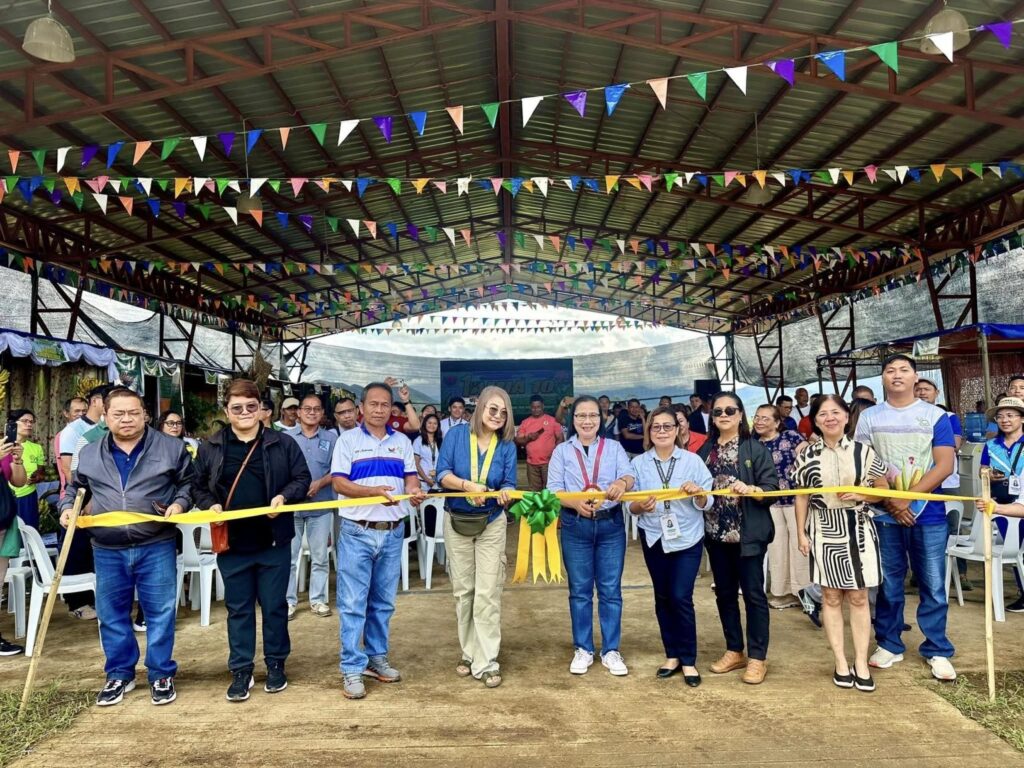North Mindanao forum links researchers, farmers to new innovations

MALAYBALAY CITY, Bukidnon (December 15, 2025) — Researchers and farmers held the 37th Regional Symposium on Research and Development Highlights (RSRDH) from Nov. 27 to 28 at the Northern Mindanao Agricultural Crops and Livestock Research Complex (NMACLRC) to coordinate research and field applications aimed at strengthening agriculture and livelihoods The two-day event, organized by the […]
Agri-NorMin, Korean partners strengthen cooperation on smart agriculture

MALAYBALAY CITY, Bukidnon – Aiming to strengthen agricultural cooperation and promote sustainable smart farming practices, representatives from the Republic of Korea visited the Department of Agriculture – Northern Mindanao Agricultural Crops and Livestock Research Complex (DA–NMACLRC) to inspect the smart greenhouse facility established through a Korea-funded project Held on November 7, the visit was led […]
DA-10 engages stakeholders, students in Livestock-Poultry Month Fest

MALAYBALAY CITY, Bukidnon — Livestock and poultry stakeholders from across Northern Mindanao gathered last October 30–31 at the Northern Mindanao Agricultural Crops and Livestock Research Complex (NMACLRC) in Dalwangan, Malaybalay City, to celebrate the 5th National Livestock and Poultry Month Spearheaded by the Department of Agriculture – Regional Field Office 10 (DA-10) through its Livestock […]
Bukidnon 4-H Club, Overall Champion sa 4-H Regional Young Farmers Camp, Agrilympics 2025

MALAYBALAY CITY, Bukidnon — Nangibabaw ang Bukidnon 4-H Club sa rehiyon human makuha niini ang 1st Place – Overall Champion sa gipahigayon nga 11th 4-H Regional Young Farmers Camp and Agrilympics 2025 Sumala sa Facebook post sa LGU Bukidnon, ang kalihokan gilunsad niadtong Setyembre 16-19 sa Northern Mindanao Agricultural Crops and Livestock Research Complex (NMACLRC), […]
Nauswag nga variety sa Adlay gipakita sa Adlay Farmers’ Field Day sa NorMin

Ang Department of Agriculture – Regional Field Office 10 nipakita og walo ka nauswag nga barayti sa Adlay atol sa Adlay Farmers’ Field Day sa Northern Mindanao Agricultural Crops and Livestock Research Complex (NMACLRC) sa Brgy. Dalwangan niadtong Agosto 14, 2025 Sumala sa Facebook page sa ahensya, natigayon kini pinaagi sa Research Division ug sa […]
Agri-10 4K Boosts Production, Livestock Support for IPs

MALAYBALAY CITY, Bukidnon — The Department of Agriculture – Northern Mindanao (DA-10) is enhancing its support for indigenous peoples (IPs) in Bukidnon province through various agricultural programs and services On January 9, under its Kabuhayan at Kaunlaran para sa Kababayang Katutubo (4K) program, the agency turned over PhP480,000 worth of carabaos to IP groups in […]
Awareness seminar on food safety, regulations held

MALAYBALAY CITY, Bukidnon — The Department of Agriculture – Regional Field Office 10 (DA-10), through its Agribusiness and Marketing Assistance Division (AMAD), staged an awareness seminar on food safety and regulations on August 15 at the Northern Mindanao Agricultural Crops and Livestock Research Complex (NMACLRC), in this city During this time, the agency apprised almost […]
Agri NorMin lauds AMIA villages in first congress

Alicia G. Ilaga (4thfrom left), Department of Agriculture national director for Climate Resilient Agriculture Office (CRAO) and Adaptation and Mitigation Initiative in Agriculture (AMIA), leads the ribbon cutting ceremony on the first day of the 2-day 1st AMIA Congress held at Northern Mindanao Agricultural Crops and Livestock Research Complex (NMACLRC) held in Brgy. Dalwangan, Malaybalay City, Bukidnon on July 11, 2024. (Photo Release/AMIA)
Bukidnon wins Best AI implementer in NorMin

MALAYBALAY CITY, BUKIDNON (February 20, 2024) – The Department of Agriculture – Regional Field Office 10 (DA-10) honors the top performing province and technicians of Artificial Insemination (AI) during the Unified Artificial Insemination Program (UNAIP) forum held on February 16 at the Northern Mindanao Agricultural Crops and Livestock Research Complex (NMACLRC) in this city In […]
Allium derby seen to boost farmers’ productivity, onion supply in NorMin

MALAYBALAY CITY, Bukidnon – Aiming to boost onion production in the region to attain self-sufficiency, the Department of Agriculture – Regional Field Office 10 (DA-RFO 10) stages an Allium Derby and Farmers’ Forum on February 22, at the Northern Mindanao Agricultural Crops and Livestock Research Complex (NMACLRC) in Dalwangan here Spearheaded by DA-10’s High-Value Crops […]
